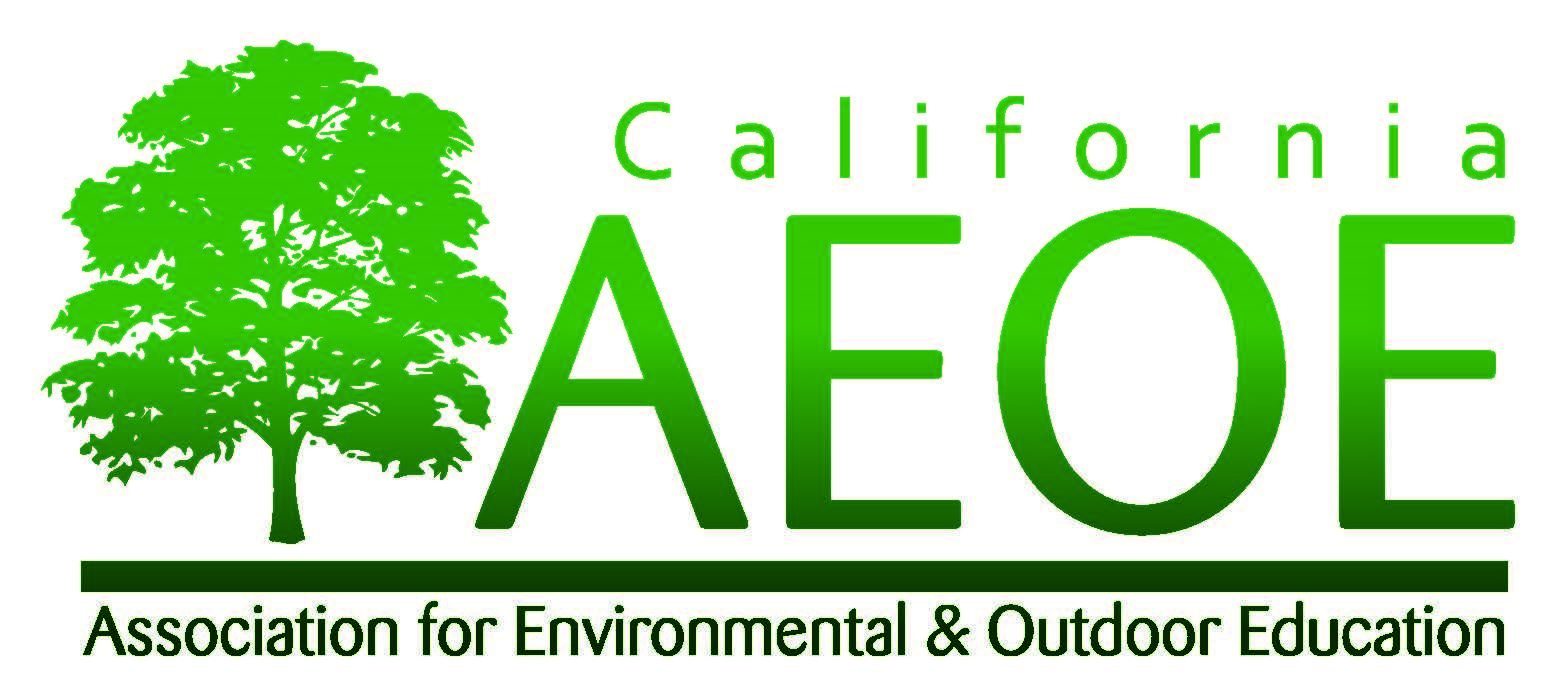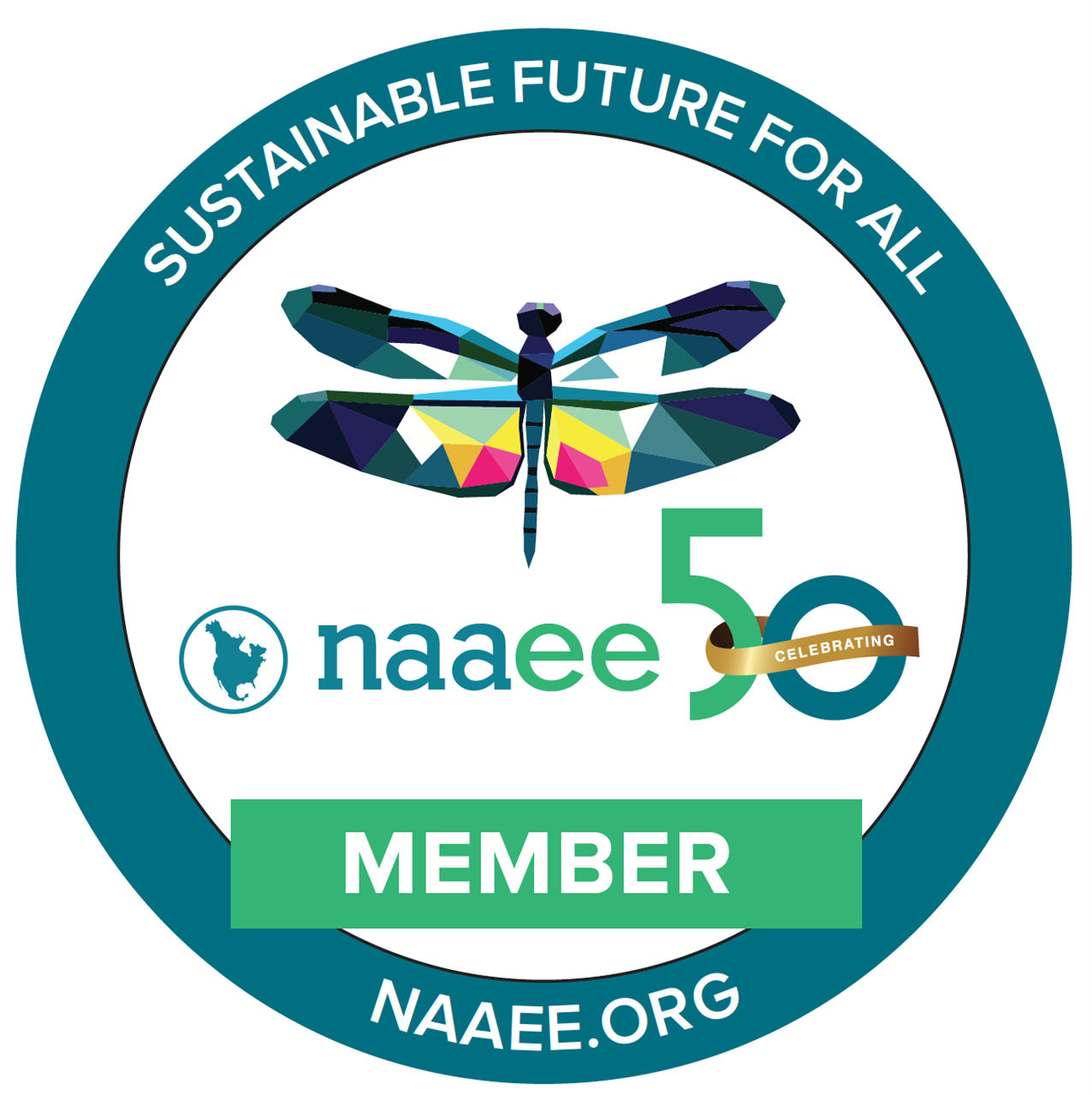| Association for Environmental & Outdoor education |
AEOE strengthens environmental education in California by connecting providers, building professional expertise, and championing environmental literacy and outdoor learning.
About usThe Association for Environmental and Outdoor Education (AEOE) is a nonprofit organization whose mission is to strengthen environmental education in California by connecting providers, building professional expertise, and championing environmental literacy and outdoor learning. As the professional association for environmental and outdoor education in California, AEOE serves as a force multiplier, convening programs and practitioners across the state to share best practices, learn from one another, and advance the field of environmental and outdoor education. We provide programs and practitioners with the tools, resources, and expertise to ensure that future generations are equipped with the skills, knowledge, and experiences necessary to develop lifelong connections to the natural world and the commitment to sustain it. Founded in 1954 as one of the first associations for outdoor educators in the nation, we are now the state affiliate of the North American Association for Environmental Education (NAAEE), the largest network of environmental education (EE) providers in the world. Environmental education is “the education we need for the world we want.” We believe that everyone has the right to the physical, social, emotional, and academic benefits of learning outdoors. AEOE was established to provide a space for educators to connect, establish a supportive community, and share best practices for teaching about the outdoors and the environment. We envision a world where every young person lives in a healthy community with access to meaningful learning experiences outdoors. The logo of AEOE is the oak tree, and this symbol captures the spirit of our organization. The oak tree represents our community's efforts to cultivate the seeds of knowledge and understanding in young people; we hope that the seeds we sow will grow into positive actions for a healthy environment for all. The diversity of oak trees throughout California are highly important to its first peoples, and in many cultures acorns are considered the "staff of life." Land acknowledgement We recognize that California is on the stolen, unceded, ancestral lands of nearly 200 tribal groups with distinctive languages, customs, and cultures. We want to share our appreciation for the past and present stewardship of the places we call home and commit to shaping a future that is just. AEOE’s work is primarily conducted from Huchiun, in Chochenyo-speaking Ohlone territory, in what is now known as the San Francisco East Bay Area. We acknowledge that this area is the ancestral homeland of the Ohlone since time immemorial and recognize the continued persistence and resilience of culture and community despite the adverse impacts of colonialism. Ohlone people have a lasting relationship with the land – one of deep respect and reciprocity to help maintain balance. AEOE acknowledges and supports Indigenous communities in solidarity and commitment to partnership, advocating for a more equitable and inclusive future. Please join us in recognizing and honoring the native peoples where you live and work, and commit to addressing Indigenous erasure and supporting native sovereignty and land reclamation. We recommend the following resources to learn about land acknowledgments and connect with the native people where you live: Native Land.ca:https://native-land.ca/ Honor Native Land: A Guide and Call to Acknowledgement:https://usdac.us/nativeland/ It’s encouraging to see how many people and organizations have embraced land acknowledgments as a first step. And, for those of us who are non-native or work for organizations that are not native-led, we must consider how we are doing the actual work of being better partners, listeners, and supporters of local tribal groups. This resource offers a number of helpful ways to move beyond land acknowledgements and take the necessary step towards acting on the commitment to center Indigenous knowledge and perspectives: https://nativegov.org/news/beyond-land-acknowledgment-guide/ Other ways to support: Consider making an annual contribution to Indigenous groups in your area, directly supporting native sovereignty and land reclamation. If you also work or reside in Berkeley, Oakland, or nearby, join us in contributing to The Shuumi Land Tax, a voluntary financial contribution that non-Indigenous people living on the Confederated Villages of Lisjan’s territory can make to support the critical work of the Sogorea Te’ Land Trust. What is environmental education?Environmental education (EE) is a process that helps people learn more about the natural systems we all depend on, and understand what we must do to interact responsibly with our environment and safeguard natural resources for future generations. Good EducationEnvironmental education is good education; EE uses learner-centered instruction, emphasizes critical thinking skills, and is interdisciplinary. Experts at Stanford University systematically analyzed 119 peer-reviewed studies published over a 20-year period that measured the impacts of environmental education for K-12 students. Studies in the review demonstrated that environmental education has led to a number of positive impacts, from improving academic performance, to enhancing critical thinking skills, to developing personal growth and life-building skills including confidence, autonomy, and leadership. In addition, a number of the studies showed that environmental education increased civic engagement and positive environmental behaviors. Click here to access the research. Why is EE so vital to our future?People’s well-being is interconnected with the well-being of natural systems. We face increasingly complex challenges—from climate change and loss of species to decreasing access to nature, a growing gap between the haves and have nots, and other threats to our health, security, and future survival. Environmental education equips people, communities, and organizations with knowledge, skills, and motivation to make informed decisions about how they can address those challenges. Where does EE take place?Environmental education works best when it happens in many different places and spaces, because this lets people build concepts and make connections over time. Some environmental education happens in formal learning settings, like schools and universities, or settings designed for environmental education, like outdoor classrooms or schools. Some happens in places where people encounter nature: parks, zoos, beaches, aquariums, or nature centers. Some happens in places that support hands-on, practical experience: laboratories, summer camps, after school programs, museums – and even boardrooms. Who provides EE?Natural systems are complex – living creatures, the physical surroundings, weather patterns, and, of course, people. So, environmental education can take place in virtually any subject discipline, from anthropology to zoology. Likewise, environmental educators work with learners across the lifespan: early childhood educators, elementary and high school teachers, camp counselors, university professors. They are the faces of many types of organizations: from afterschool programs to state and federal agencies. Some environmental educators are what we all tend to picture as “teachers,” but they also might be naturalists, scientists, park rangers, and many others. EE and YouWe are all environmental educators in some way, shape, or form. The wide variety of EE providers and many different ways EE is provided creates opportunities for Californians to explore their connection to the natural world in many settings and ways. Yet it is not necessary to be part of an organization or formal program to participate in or support EE or to help advance environmental literacy in California. Individuals who share information and ideas about what they have learned can make a real difference. Those who help fund projects and programs make critical contributions. Those who model environmentally responsible choices and actions are especially influential in moving our community toward environmental literacy. Watch the videos below to learn more. |
Guiding and governing documents
You can access our bylaws here
You can access our strategic plan for the fiscal years 2024-2027 here
You can access our most recent annual report for the current fiscal year 2024-2025 here (and the previous fiscal year 2023-2024 here)
_-163.jpg) In 2019 AEOE was named Outstanding Affiliate of the Year by the
In 2019 AEOE was named Outstanding Affiliate of the Year by the 
